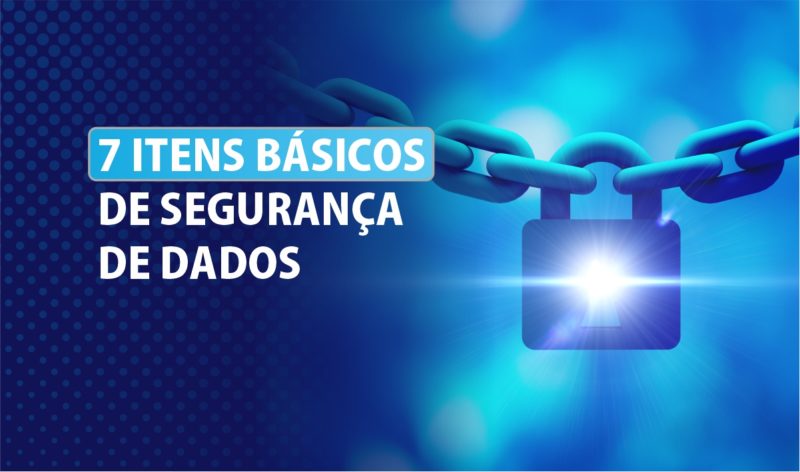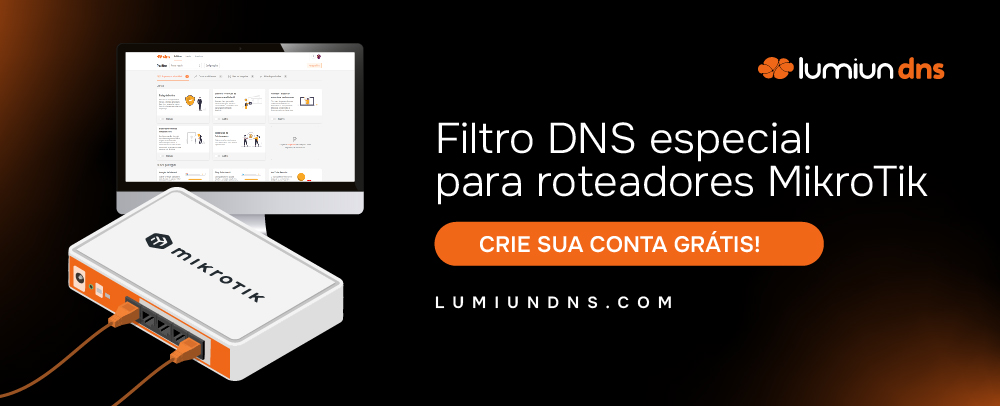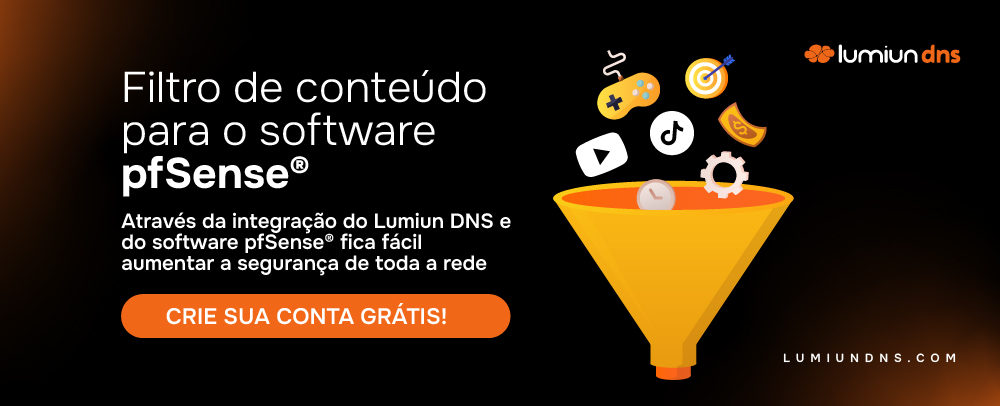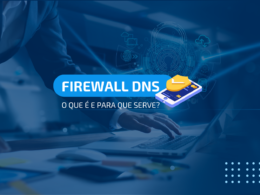Maintaining data security is one of the business management strategies that cannot be set aside, taking into account the various protective tools, but mainly, the amount of existing attacks today, with the daily use of the internet by companies.
I see many information worried managers with information security only after they have already suffered some kind of attack. Many look for the subject and find our blog.
What not all do is implement a basic safety system, identifying possible fragile points and actively acting on breaches correction.
In this article, we will talk about the principles of information security and the most common and essential solutions to protect company data.
What are the principles of information security?

To understand what information security represents, it is necessary to know its basic principles and its characteristics.
Confidentiality
It is the character of reliability of information. The user should be assured the good quality of the information he will be working with.
Integrity
It is the guarantee that the information will be complete, exact and preserved against improper changes, fraud or even against its destruction.
Thus, violations of information are avoided, whether accidentally or even purposeful.
Availability
It is the certainty that information will be accessible and available on a continuous scale for authorized persons.
Nowadays, the cloud and remote access mechanisms make it possible to availability of information from anywhere and time.
Authenticity
It is knowing, by appropriate registration, those who have made access, updates and exclusions of information, so that there is confirmation of their authorship and originality.
As we have seen above, information security covers some aspects that must be in the plan to implement your business data security systems. In fact, such aspects are part of the basic premise of the General Data Protection Law, widespread in news portals and here on the blog .
Next, we will see the fundamental and basic tools for efficient data security in the corporate environment.
What are the basic information security items for companies?

Entrepreneurs understand that company data is important. Information about the products or services offered, names and documents of employees, billing, accounting, among many others, are available in the systems used.
Because it is highly sensitive information, many managers are looking for security tools that protect data from cyber attacks that can be aligned with LGPD.
Without a basic protection system, simple failures can cause huge damage, ranging from exposure of handy financial values, customer data loss to data kidnapping , requesting a high amount for return or unlocking such data.
All information is considered business assets. In this sense, it is of utmost importance that they are preserved through information security tools and practices, such as the following.
1 - Mapping weaknesses
Identifying your business network from which you can come from threats can greatly facilitate your efficient data security process. Grouping the data, it is possible to identify the panorama of which weaknesses are considered small and which ones deserve the most and immediate attention.
To identify possible problems in the internet network, there are security and vulnerability tests of the internet network.
Some of them are based on access to access to websites considered harmful, while others do test opening tests and virus infection.
I even wrote another article here on the blog with more detailed information on the topic.
2 - Keep equipment and systems updated
Equipment and systems undergo continuous technological evolution and need to be replaced and updated periodically. In addition, in the acquisition of such tools, quality and performance aspects compatible with the use of the company should be taken into account, so that they work in a way that perfectly meets the needs of the company, without charges, failures or defects for inadequate use.
In addition, there is the factor "originality". Many companies today choose to use pirate tools to reduce costs. However, this custom can lead to several problems, especially data security, after all, they are modified versions of the original, where maintenance and originality verification were removed mainly.
For operating systems the logic is the same. Updated, it contains safety improvements in addition to new features, as new forms of invasion and safety breaches are emerging.
Therefore, keeping the company's equipment and systems up to date are one of the main points for efficient data security in companies as they are used massively every day.
3 - Structure a backup system
It is never too much to remember the importance of having a backup , from which the important data can be recovered after any incident.
In some types of attack, such as ransomware, which blocks data until payment of a ransom, the main way to solve the problem is restoring company data from a backup copy.
The backup strategy should be implemented so that there is a security copy kept in a uncovered location from the original data site. If the safety copy is done on an additional disk constantly connected to the server or network where the original data are, in the specific case of ransomware, it is possible that the backup files are also blocked at the time of attack, making backup useless. It is important to have a security copy in a separate place from the original location where the data is.
Backup is critical in the security of company information.
4 - Implement a firewall rules system
Firewall a security device that controls network data flow. With it it is possible to filter traffic, setting what should pass and what should be discarded.
When configured correctly on a computer network, Firewall acts as an additional layer of external attack protection and increases the safety of the company's network, equipment, systems and information. Normally firewall is one of the main defenses in the perimeter of a private network, being an essential component in protecting unwanted traffic and invasion attempts.
5 - Prepare a document on the policy of use of the internet in the company
Establishing guidelines for members of the organization, regarding the rules of using information technology resources, perhaps one of the most “cheaper” ways to improve data security.
These rules, listed in a document, signed and foreseen by the user before making any use of the company's equipment, serve to prevent employees without knowledge, unprepared, negligent and in some cases even misunderstanding, put the company's data at risk, at the mercy of digital criminals.
Developing an information security policy in the company may decrease possible spending and investments with corrective measures from cyber attacks.
6 - Do Internet Access Control
Controlling internet access is a common practice in companies and increasingly important and necessary. Unlike the information security policy, doing access control does not require the employee's common sense and will so that access to harmful websites and outside the scope of work are not accessed.
In most incidents or security breaches, the gateway to attacks or virus installation are users who are unable to identify possible risks and end up clicking on fake email messages or malicious links on the internet.
access control system in the company can close the vast majority of hacker input ports on the company's network.
Among those available on the market are some solutions for internet access control such as DNS Filter , Lumiun Enterprise , Nextdns and Cisco Umbbrella .
Among those mentioned, only Lumiun Enterprise has fully supported Portuguese from Brazil and payment in national currency, which is a great differential, taking into account the growing value of the dollar.
7 - Use safe remote support tools
With the large number of home office professionals, it is quite common for companies to support these employees remotely. However, without the company's protection systems working in favor of the employee, data and devices in this action will be at risk if they do not use secure remote support tools.
Among all solutions, the most commonly used is VPN Business.
The acronym " VPN " means virtual private network, translating private virtual network, is a network technology that uses the internet to connect a group of computer and maintain the data security that traffic between them.
The main advantage for a company that uses VPN is certainly increasing information security when there is a need to traffic confidential data between branches or to employees who work remotely and need to access data in the local network.
Therefore, if at some point one of the company's employees makes remote access to the company's internal data, it is extremely important to use a VPN connection, keeping company data protected.
Conclusion
In the same proportion as technological updates produce resources to protect information, open new opportunities that can be used by malicious people, with the aim of performing cyber crimes, aiming to obtain fame and money.
Numerous cases of security violation of large companies and systems are disclosed monthly, and need to be studied in the background for the acquisition of new practices and protection solutions.
Among all data security tools considered fundamental, mentioned above, which ones are used in your company? I hope the answer is not worrying, but if so, I hope the material has helped to implement as many of them as soon as possible.
To the next!












4 comments
Comments closed